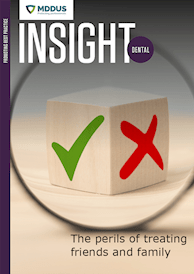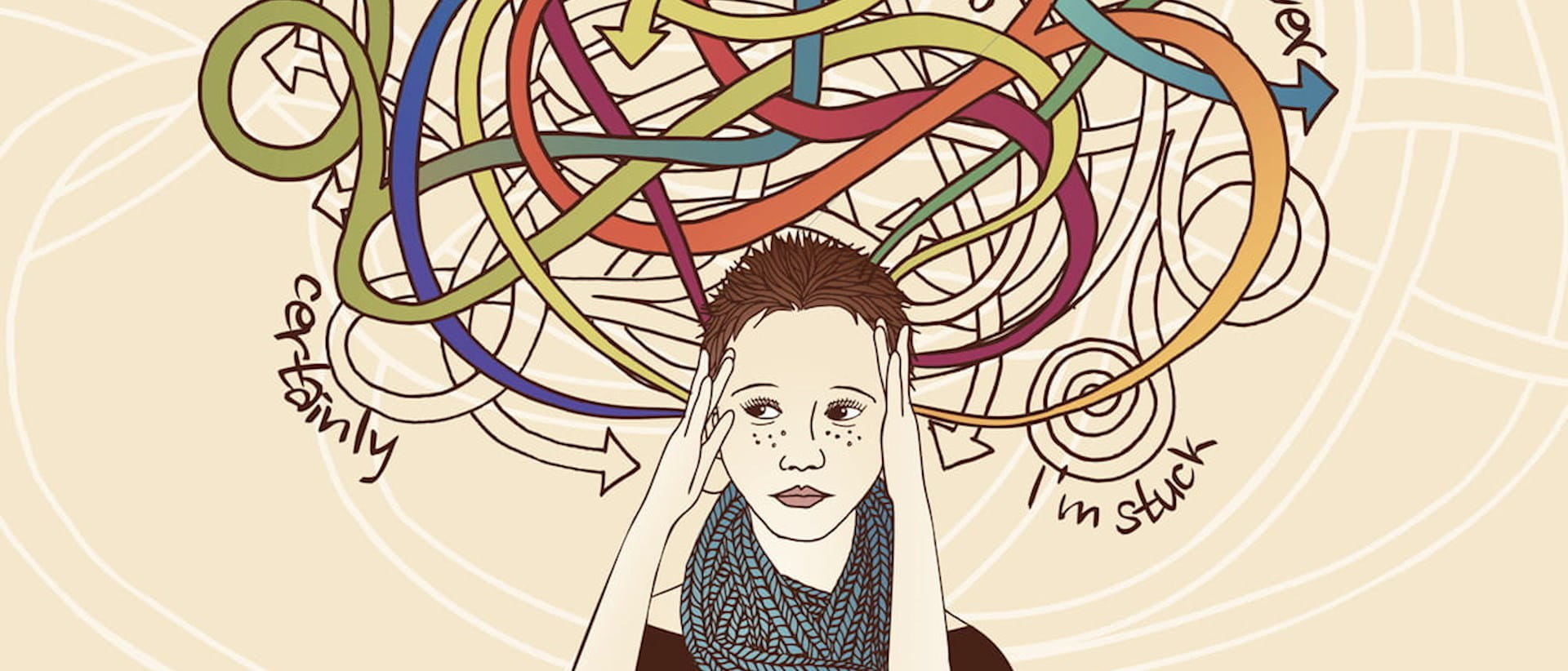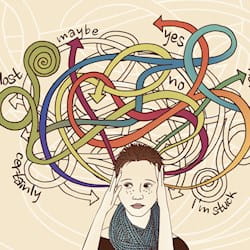I FACE a tough decision. The specific nature of which doesn’t matter. You might face a similarly tough decision. Or perhaps you love someone making a hard choice. Maybe you’re the person whom others approach seeking advice. Perhaps your days are full of patients, families and colleagues who are navigating unanticipated decisions. I imagine there are few people reading this column who have not felt the weight of a hard choice.
We talk often of impossible decisions, proverbial rocks and hard places, tough calls and being in quandaries. The more classically-minded may invoke Scylla and Charybdis. Our verbs and idioms are intriguing. We can be “in two minds” suggesting a binary quality to decisions. We “think long and hard” conveying the importance of time. We try to avoid “sitting on the fence”, suggesting that taking too much time leads to stasis.
Some phrases conjure a sense of momentum towards choice as “we take it one step at a time”, “come to a decision” or “arrive at a decision”. Eventually we “make up our minds” implying creativity as well as a deliberative element. Sometimes in making that choice we seek to distil its essence with the curious phrase, “at the end of the day”, which contains a hint of anxiety as we appeal to the future and a time when it is settled.
I have spent my career supporting and reflecting on difficult decision-making in clinical practice. Mine is a professional world of contested perspectives, differences of opinion, competing priorities, implicit values, unspoken assumptions and high stakes. I have adapted, created and applied models, methods and approaches to facilitate ethical decision-making.
I’ve developed and evaluated frameworks within which choices are articulated, questioned, weighed and considered. I’ve written my share of papers, chapters, books and presentations about what might be helpful when encountering testing ethical questions or challenges in practice. I’ve made arguments, tried to consider and engage with other perspectives and sought to reach reasoned conclusions. In my personal life, I write lists of pros and cons, listen to my intuition, seek out those who may see it differently, attend to those who demonstrate wisdom, interrogate evidence and bring the skills of logic, critical thinking and rational analysis to decisions.
And yet. And yet.
The methodologies, tools, experiences, skills, structured frameworks, wide-ranging efforts and varied approaches are found wanting. They are disappointing; even inadequate. I continue to carry and to feel the burden of the hard decision. It remains a background hum reverberating during my waking hours and sometimes appearing in nightmarish form in my dreams. No amount of rationality, supportive advice, attention to my intuition, deliberative reflection or endless list-making seems to help.
That is, of course, because what I mean by “help” is problematic. I want a solution. I want to be sure. I want to know that I have done the ‘right’ thing.
There is also much unsaid about what I don’t want that is hard to acknowledge. I don’t want to make this decision at all. I don’t want the question to have arisen. I don’t want to feel this overwhelmed, intruded upon and exhausted by it all. I don’t want to be responsible. I don’t want to get it wrong. I don’t want to be in this position. I don’t want to spend my time consumed by the choice. I don’t want to acknowledge the pain and the loss the decision represents. I don’t want to engage with complex, contradictory and confusing emotions where hope and fear, courage and vulnerability, intention and denial, clarity and doubt, autonomy and dependence collide.
Little wonder that the best decision-making tools, the experience of facilitating ethical choices in other contexts and thinking it over are insufficient.
My decision and situation are not unique. Whilst my personality, circumstances and preferences mean that I experience the hard decision in a distinct way, the complex emotional terrain that underpins difficult choices is, I suspect, common. The extent to which people can recognise, tolerate and engage with that emotional complexity varies.
The capacity within an overstretched and under-resourced healthcare system to explore those complex emotions is inevitably constrained as time, staff and facilities all come under pressure. Some people do not want, nor can bear, those emotions being acknowledged or explored explicitly with others, or even alone. Others prefer to keep such messy emotions out of the clinical consultation and focus only on information and evidence.
The extent to which emotions are recognised, understood, considered and discussed will necessarily vary depending on a range of factors, some patient-related, some systemic and some professionally-related. Nonetheless, those emotions are always present. They may be unacknowledged, resisted and unexamined, but nonetheless are integral to making hard choices.
No ethical framework or decision-making tool can capture that complexity. However much we wish it could.
This page was correct at the time of publication. Any guidance is intended as general guidance for members only. If you are a member and need specific advice relating to your own circumstances, please contact one of our advisers.
Read more from this issue of Insight Dental

Save this article
Save this article to a list of favourite articles which members can access in their account.
Save to library




